Plenary Sessions

27 – 29 December 2024

Grand Hall, Lee Shau Kee Lecture Centre,
LG/F, Centennial Campus, The University of Hong Kong
Plenary Session 1
Urbanisation/ Migration & Family
Date: 27 December 2024 (Friday)
Time: 11:20 am - 12:50 pm
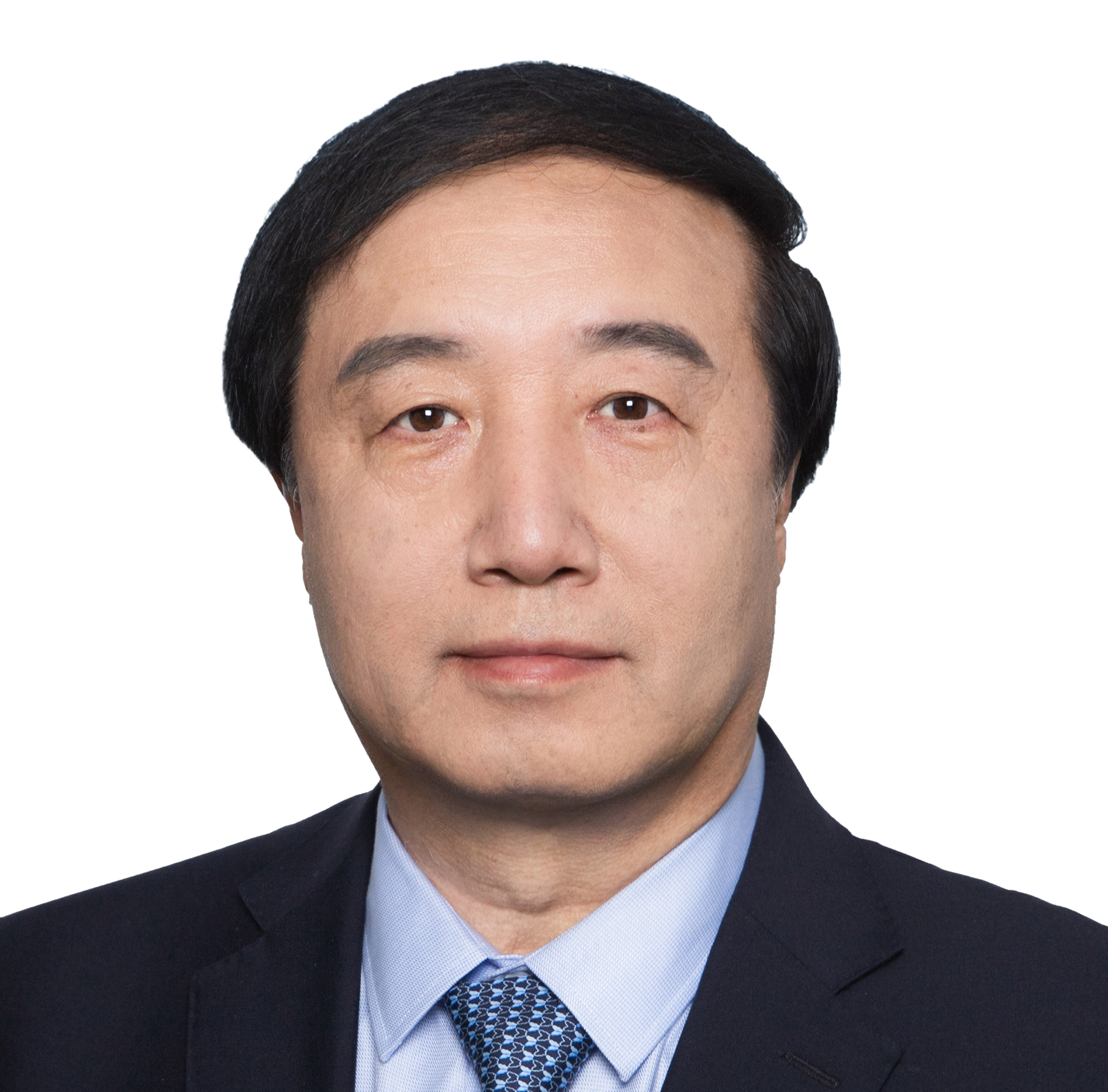
| Prof. Peng DU Dean, School of Population and Health, Renmin University of China, China |
| Speaker Biography Professor Peng DU is former vice-president of Renmin University of China, dean of School of Population and Health of Renmin University of China, dean of Institute of Healthy China, and director and professor of the Institute of Gerontology. He is also an experts committee member of the National Working Commission on Aging, vice-president of China Gerontology and Geriatrics Society, and vice-president of China population Association. His main research interests are population aging, aging policies, and population and development. He has led multiple national and provincial research projects, including “Implementation of National Strategy to Actively Respond to Population Aging”, a Major Program of National Social Science Fund of China. His accolades include the 9th China Population Award, national selected candidate of New Century Talents Project, and State Council Special Allowance Expert. |
| Topic Urbanism, Migration and Family Wellbeing in China |
| Abstract Since the 21st century, the world has been experiencing "concurrent changes in population and families", with urbanization accelerating the transformation of family structures across nations. This trend is particularly pronounced in China, characterized by a large population, vast territory, distinct urban-rural features, and the coexistence of declining birth rates and an aging population. Migration and mobility serves as a significant driver of urbanization, profoundly impacting family change in China. Structurally, this is evidenced by smaller family sizes, flatter generational structures, diverse family types, an increase in mobile families, and the rise of empty-nest elderly households. Relationally, there is a democratization of intergenerational relationships, a weakening of parent-child bonds, and heightened dependency among spouses. Functionally, families are experiencing a decline in production roles, differentiation of elder care functions, a weakening of reproductive functions, and growing reliance on external support. These changes pose distinct challenges for family development in contemporary China, particularly concerning social integration, the "one old, one young" issue, and urban-rural collaboration. Therefore, it is essential to accelerate the establishment of a family support policy framework that promotes shared responsibilities between the state and families, implements diverse measures to strengthen family development capacity, and effectively enhances family well-being and the quality of life for residents. Key words: Family Changes; Family Development Capacity; Population Urbanization; Migration and Mobility; International Year of Families |
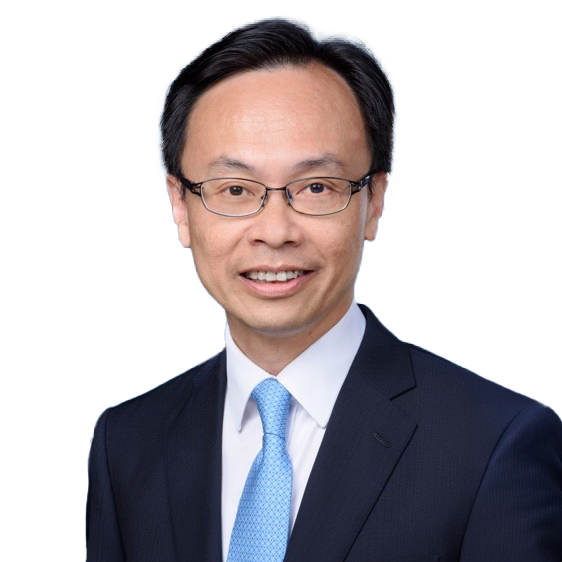
| Prof. Patrick Tak-Kuen NIP, GBS, JP Vice Chairman, World Vision China, Hong Kong SAR |
| Speaker Biography Professor NIP is the Vice Chairman, Board of World Vision China. He is also an Adjunct Professor at The University of Hong Kong; an Honorary Professor at The Chinese University of Hong Kong; an Independent Non-Executive Director of Hang Seng Bank (China) Limited; and the Convenor of the Advisory Committee of the Jockey Club Carer Space Project. Professor NIP has worked in the Government for 36 years. He has served in various bureaux and departments and assumed senior positions both as a civil servant and a political appointee. He was the Secretary for Constitutional and Mainland Affairs from July 2017 to April 2020 and the Secretary for the Civil Service from April 2020 to June 2022. He was appointed the Director of Social Welfare in August 2009, the Director of the Chief Secretary for Administration's Private Office (on poverty alleviation and population policy) in June 2013, the Director of Information Services in February 2014 and the Permanent Secretary for Health in July 2016. Professor NIP received a Bachelor of Social Sciences degree from The University of Hong Kong and a Master in Public Administration degree from the Harvard Kennedy School. He has also studied public administration at Oxford University. |
| Topic Urbanisation and Migration: Serving the Most Vulnerable Children |
| Abstract For generations, people in Asia have migrated within their countries and across borders in search of better opportunities than they can find at home. As a choice, migration can be hugely empowering. However, as external factors like climate change put ever more strain on rural livelihoods and traditional ways of living, many of the region’s most vulnerable families find themselves with fewer alternatives, and migration may seem like the only option. For 75 years, World Vision has been committed to improving the lives of the most vulnerable children in Asia through multi-sector programmes tailored to the needs and priorities of local communities. Understanding and responding to the unique needs of children in the context of migration is increasingly critical to the organization’s ability to effectively serve the most vulnerable children in a rapidly urbanizing region. This session will: explore the nuances of migration for vulnerable families and young people; share learning and best practices from World Vision’s work with families reshaped by migration, with case studies from mainland China, Cambodia, and Thailand; and provide a call to action for a multi-stakeholder response to ensure children are more effectively protected and better cared for, whether on the move, or remaining behind. |

| Dr. Mine SATO Associate Professor, Department of Urban Innovation, Yokohama National University, Japan |
| Speaker Biography Mine SATO is an Associate Professor specializing in International Development Studies and Applied Anthropology, currently working at Institute of Urban Innovation, Yokohama National University. She has worked with a variety of international cooperation agencies such as UNICEF, JBIC and JICA as a social development specialist. Her main research interests are agency& wellbeing (agentic empowerment), sustainable and inclusive community design, and development policy discourse analyses. Her main research fields are Latin America (especially Nicaragua), Japan and USA. |
| Topic Living in Two Places as a Related Population: Expansion of Urban Functions and Realization of QOL in Japan |
| Abstract This presentation explores current situations, measures, possibilities, bottlenecks, and perspectives regarding dual habitation in Japan, which has been spotlighted in the context of prolonged pandemic situations. First, the author introduces how overpopulation in metropolitan Tokyo has been accelerated and how the quality of life has been affected, which has boosted interest in rural migration consequently. Second, sharp population declines in rural areas and difficulties to promote migrations from urban areas will be illustrated. Third, current policies and measures to promote dual habitation will be overviewed and analyzed. Subsequently, actual cases of dual habitations will be introduced and discussed to understand whether such practices can be chosen widely by the general population. Finally, future perspectives and policy recommendations are shared so that dual habitation can be a popular life choice for the more general population. |
Plenary Session 2
Demographic Changes & Family
Date: 27 December 2024 (Friday)
Time: 3:20 pm - 4:50 pm
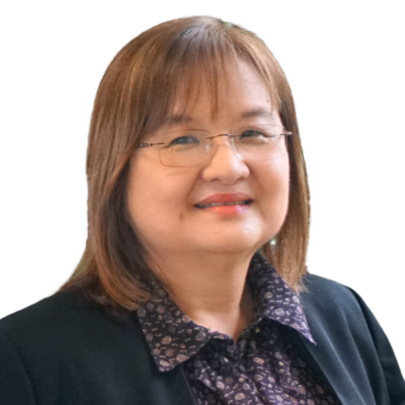
| Dr. Corinne GHOH Associate Professor (Practice), Social Work Department, National University of Singapore, Singapore |
| Speaker Biography Dr Corinne GHOH is an Associate Professor (Practice) in the Department of Social Work at the Faculty of Arts and Social Sciences, National University of Singapore (NUS). She brings over 35 years of extensive experience in the field of social work, with significant expertise in safeguarding the welfare of vulnerable individuals and families, as well as in the care of older adults. Before joining NUS, Dr GHOH served as a Senior Consultant with the Ageing Planning Office at the Ministry of Health. She also held the position of Director of Social Welfare at the former Ministry of Community Development, Youth and Sports, now known as the Ministry of Social and Family Development. Dr GHOH's distinguished career spans various domains within social work, highlighting her dedication to improving social welfare policies and practices. Her ongoing work at NUS continues to influence both academic and practical advancements in social work. |
| Topic Aging in a Super-Aged Singapore: Challenges and Opportunities for Older Adults and Their Families. |
| Abstract Singapore is witnessing a rapid demographic shift as its population ages. Over the past decade, the proportion of residents aged 65 and above has surged from 9% in 2010 to 20% in 2024. By 2026, this figure is anticipated to exceed 21%, placing Singapore in the "super-aged society" category as defined by the United Nations. Projections indicate that by 2030, one in four Singaporeans will be aged 65 or older. Amidst this backdrop of an aging population and increasing life expectancy, Singapore faces the challenge of a declining fertility rate, which remains below the replacement level. This plenary will delve into the implications of these demographic changes on aging in a super-aged society. We will explore the multifaceted impact on older adults, the evolving roles of families, and the necessary policy responses from the community and society at large. |
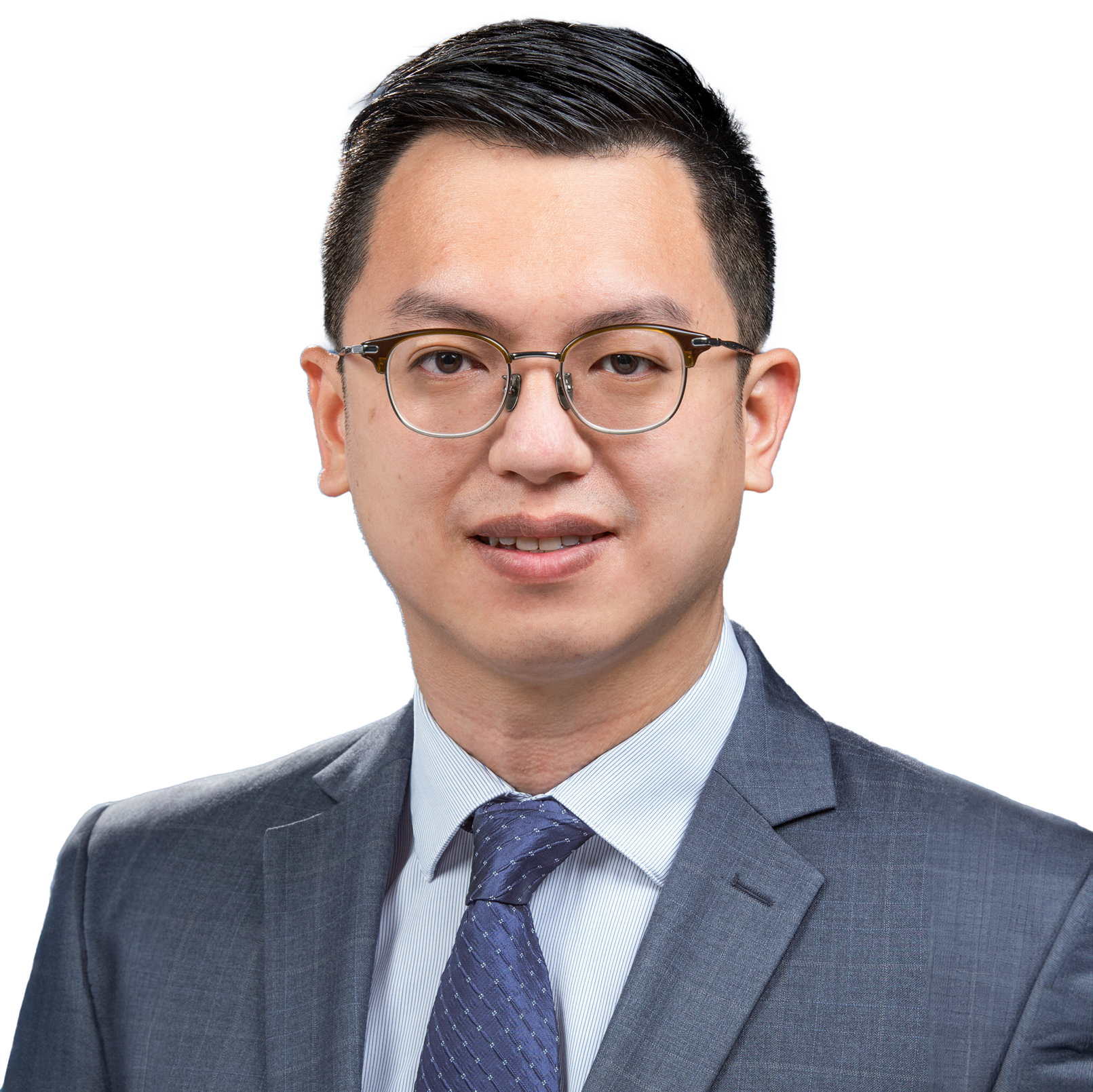
| Mr. Kai-Ming HO, JP Under Secretary for Labour and Welfare, Hong Kong SAR |
| Speaker Biography Mr. HO has been Under Secretary for Labour and Welfare since 2020. Mr. HO had served as Council Member of the Chinese University of Hong Kong, Director-General of the Hong Kong Manufacturing Industry Employees General Union, and as a member of the Executive Committee of the Hong Kong Clerical and Professional Employees General Union. Prior to joining the Government, Mr. HO was a member of the Legislative Council, and of the Kwun Tong District Council from 2012 to 2019. He is a member of the Hong Kong Federation of Trade Unions. Mr. HO holds a Bachelor of Arts degree from the Chinese University of Hong Kong. |
| Topic Addressing Demographic Challenges : Measures of the HKSAR Government from the Social Welfare Perspective |
| Abstract Ageing has presented unprecedented challenges to many developed countries and places, and Hong Kong is no exception. From the territory-wide perspective, the key challenges include shrinking labour force, decelerating economic growth, increasing healthcare expenditure, upsurging demand for elderly care services. These challenges have called for new and innovative social welfare initiatives on one hand to enhance child care services with a view to unleashing the women labour force, and on the other hand, to meet the ever-growing demand for elderly care services. This plenary session will share the experience of the HKSAR Government in recent years in addressing the challenges brought about by the demographic change. |
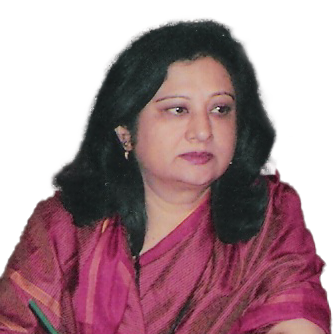
| Dr. Mala Kapur SHANKARDASS Founder, Development, Welfare and Research Foundation (DWRF), India |
| Speaker Biography Dr. Mala Kapur SHANKARDASS, a sociologist, gerontologist, health and development social scientist with a doctorate degree and post-doctoral work is an academician, researcher, writer and an activist. She does prestigious assignments at micro and macro levels for various Indian and foreign institutions, including UN agencies. She is associated as Committee Member with various Ministries/departments of Government of India. She also holds honorary executive positions with a few NGOs and serves as an Expert/Resource Person to varied organizations including delivering lectures/talks and being a Reviewer, Editorial Board Member for publishing houses and reputed journals. She has published 13 books, many chapters with world publishers, has 3 forthcoming volumes in the next few months, and over 100 articles in specialized journals, magazines and newspapers. She is invited Panelist with media houses. Since 1990s is recipient of fellowships and professional awards. She advocates for appropriate policies, programs, and pragmatic action from a right based perspective with a life cycle approach towards quality-of-life issues for the wellbeing of humanity across ages. She is Life Member of various professional bodies and Founder of Development, Welfare and Research Foundation, a CSO registered with Government of India since 2000, doing many meaningful programs/activities. |
| Topic Impact of Demographic Changes on Family |
| Abstract In contemporary world families worldwide are impacted in many ways by demographic changes especially due to declines in fertility and mortality rates, extension in lifespan, population ageing, increasing migration, all resulting in shaping intergenerational relationships as well as gender equations in various ways which then requires policy response for the wellbeing of family members of different sex and of all ages. Demographic trends present many challenges to families to achieve desired family size, care responsibilities of children, older parents, bring in work-family balance, share household responsibilities, and provide healthy wellbeing to its members without gender and age constraints. It is imperative that in this scenario various stakeholders reflect on the opportunities that global and national demographic situation presents in order to enhance the potential of different family forms and structures. Along with this it is pivotal for societies to take into account varied mechanisms and measures that can be adopted to provide enabling environments for individuals to maintain healthy sustainable intra and intergenerational bonding. The discourse in this presentation highlights the need of maintaining intergenerational solidarity, gender equity, strengthen household’s capacity so that families can overcome negative impacts of existent demographic patterns and enjoy positive sustainable outcomes. |
Plenary Session 3
Climate Change on Family
Date: 28 December 2024 (Saturday)
Time: 11:35 am - 1:05 pm
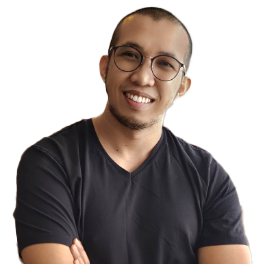
| Dr. John Jamir Benzon ARUTA Associate Professor, Department of Psychology, De La Salle University, Philippines |
| Speaker Biography John Jamir Benzon R. ARUTA, PhD is an Associate Professor at the De La Salle University, Manila, Philippines. His research program includes 1) the application of psychology principles in promoting environmental sustainability, 2) the interface between climate change and mental health in the Global South context, 3) planetary health, and 4) the mental health of neglected and marginalized populations. He is an Associate Editor of the journal Global Environmental Psychology and is a member of the Editorial Board of BMC Psychology and Nature Communications Psychology. Dr. ARUTA is also an active clinical practitioner in the Philippines, providing mental health assessment, counseling, and psychotherapy for families, children, adolescents, and early adults. He was awarded an Outstanding Young Scientist 2023 by the National Academy of Science and Technology, the highest award-giving body in science in the Philippines. |
| Topic Climate Change and Mental Health Nexus from a Climate Justice Lens: Implications for Families and their Dynamics |
| Abstract Climate change is already devastating societies, cultures, livelihoods, health, and mental health. This plenary talk focuses on the intricate nexus between climate change and mental health. Using Global South and climate justice perspectives, the lecture looks into how climate injustice is linked with the disproportionate impacts of the climate crisis on people in climate-vulnerable countries, zooming in to the experiences and insights from the Philippines. The session also showcases the efforts to build a community of practice for climate change and mental health intersection in the country. Importantly, this talk expands how the different forms of injustice in the climate change contexts could affect families and their dynamics from the perspectives of marginalized and vulnerable groups. |
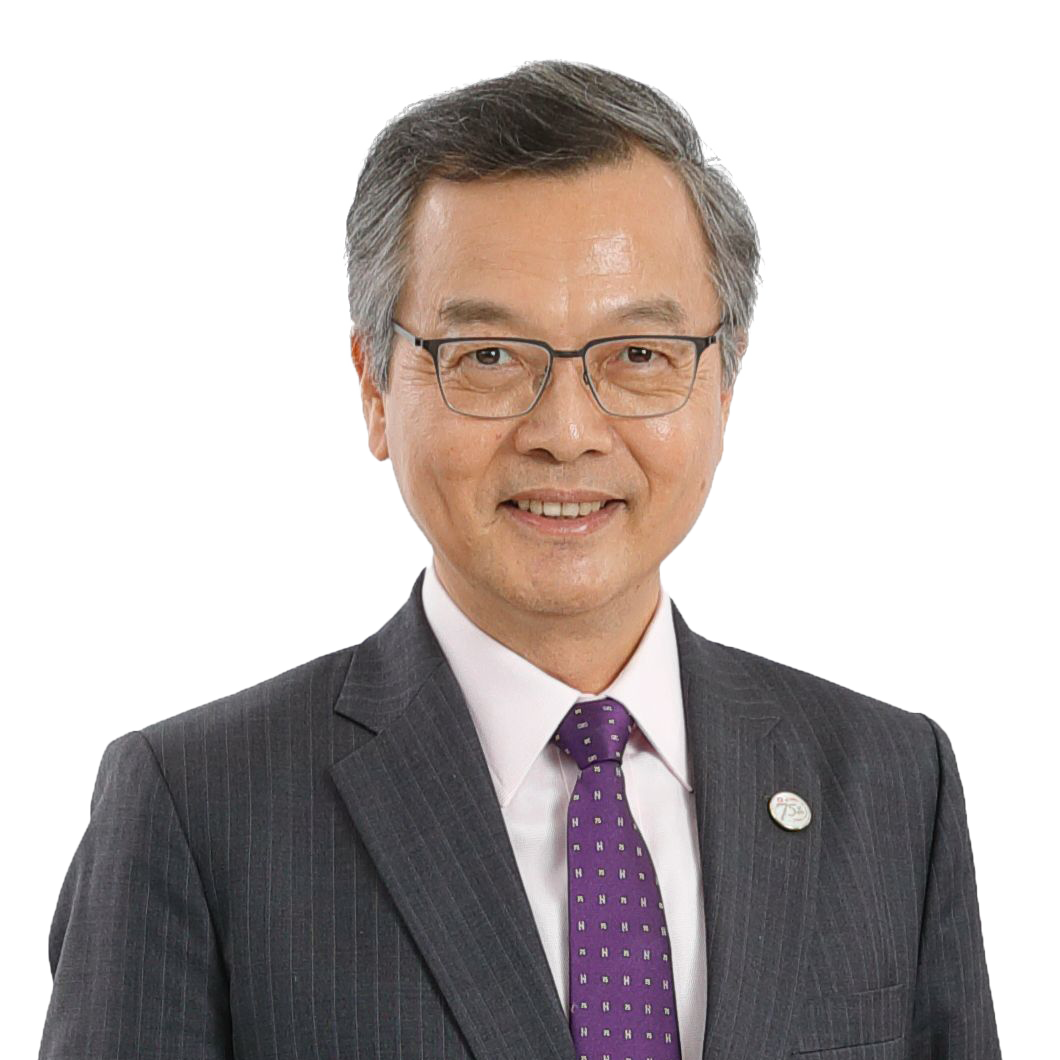
| Dr. Ching-Choi LAM, SBS, JP Chairman of the Council for Carbon Neutrality & Sustainable Development, Hong Kong SAR |
| Speaker Biography Dr. LAM is a specialist in paediatric and community medicine and is currently Chief Executive Officer of Haven of Hope Christian Service. With his extensive knowledge of local public health policies and services, Dr. LAM has sat on multiple statutory and advisory bodies. He is a non-official member of the Executive Council of the HKSAR Government. Prior to his current position as the Chairman of the Advisory Committee on Mental Health, he served the Elderly Commission for almost 20 years, and he was once the Chairman of the Commission. He now also serves the Council for Carbon Neutrality & Sustainable Development, the Primary Healthcare Committee, the Steering Committee on Review of Manpower for Healthcare Services in Residential Care Homes, the Healthcare & Wellness Training Board of the Vocational Training Council, the Industry Training Advisory Committee of Elderly Care Service and the Independent Commission Against Corruption Complaints Committee. He is also a member of the Green Technology & Finance Development Committee as well as the Advisory Panel on Silver Economy to provide advice to the government on various policies. Dr. LAM was honoured by the HKSAR Government with the Justice of Peace in 2003 and Silver Bauhinia Star in 2019. In 2018, apart from receiving Honorary Fellowship from Lingnan University, he also received the Ageing Asia Global Ageing Influencer Award (Special Recognitions) in recognition of his devotion to public services and his influence on policy-making for the global ageing trend. |
| Topic Impact of Climate Change on Family |
| Abstract Climate change is the defining challenge of our time, and lot of attention has been devoted to its damage to the natural and the built environment. But our understanding of the climate crisis would not be complete without considering its adverse impacts on families, such as health problems triggered by temperature rise, increased cost of living to cover energy bills and rising food prices, disruption of economic activities or even the loss of property caused by adverse weather events, etc. Despite the above challenges, families can also be empowered to become an important driving force for climate action. Families, being the essential and fundamental units supporting the sustainable development of the community, provides the best place for developing climate awareness and a climate-friendly lifestyle through inter-generational education. Families as consumers can also drive the green and low-carbon transition by making the right consumption choices. By practising energy saving, procuring energy efficient appliances, opting for green mobility options, and participating in reuse and recycling, families can make direct contribution to the implementation of the decarbonisation strategies that will help Hong Kong achieve carbon neutrality before 2050. |
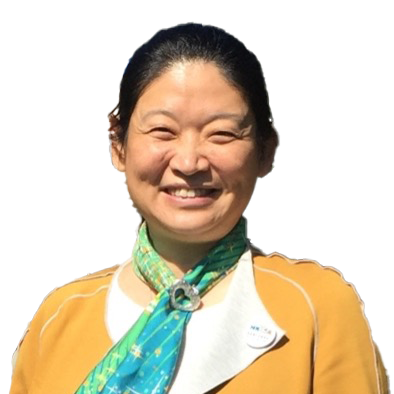
| Prof. Dongmei JIANG Chair, International Youth Science Video Fair Committee, China |
| Speaker Biography Prof. JIANG Dongmei graduated from the School of Environment at Nanjing University and conducted postdoctoral research at Tsinghua University. Her main research area is addressing climate change. She is a professor at Zhengzhou Normal University and the academic vice president of Zhengzhou University of Technology. She has served as a visiting researcher at the Energy Research Institute of Hong Kong Baptist University and the STEAM Research Center of Lingnan University in Hong Kong. She has not only made outstanding achievements in addressing climate change and carbon neutrality, but more importantly, she loves youth science education.She has served as the tenured honorary president of the Hong Kong Youth Science Academy. In 2006, she founded China Youth Science Video Education, and in 2010, she initiated and organized the "China Adolescents Science Video Festival" in China, which has been held for 14 sessions. In 2016, she initiated and organized the "International Youth Science Video Fair" in Hong Kong, which has been held for 9 sessions. She has edited 12 books, including the "Open DV to Learn Science" series, " Curiosity takes flight through the lens ","Lighting your dreams from discovery videos" etc., introducing youth science video activities. Now she is the chair of 9th International Youth Science Video Fair Committee. |
| Topic How to make discovery videos in your family? |
| Abstract "How to make discovery videos in your family?" 1. Each family is a research group, where mother and children can be scientific explorers, working together to complete a discovery project; 2. Each family is a film crew, where mother and children can be directors, screenwriters, photographers, editors, actors, voice actors, and composers, working together to complete a short film; 3. The topic of discovery video can focus on the UN sustainable development goals, 17 goals in total, to cultivate the responsibility of the next generation. They can choose topics that are meaningful to the society, all mankind, and the earth, such as biodiversity conservation, climate protection, and clean water preservation. 4. The Research of discovery video should follow the general practice of science research to enable the next generation to master how to think in a scientific way. |
Plenary Session 4
ICT & the Family
Date: 29 December 2024 (Sunday)
Time: 2:15 pm - 3:45 pm
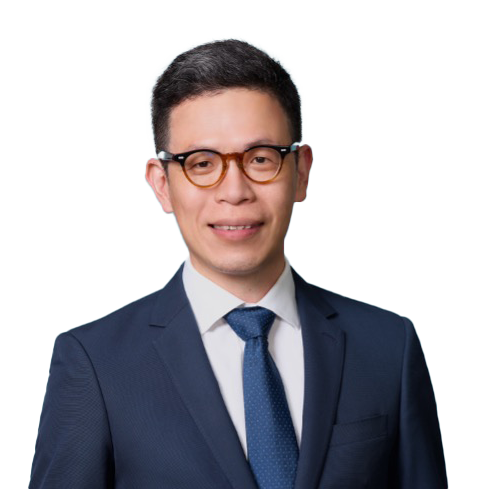
| Prof. Kelvin Man Ping WANG Principal Investigator of Jockey Club SMART Family-Link Project, The University of Hong Kong, Hong Kong SAR |
| Speaker Biography Professor Kelvin WANG is the Principal Investigator of Jockey Club SMART Family-Link Project (Phase 2, Nursing), a Professor at the School of Nursing, Assistant Dean (Professional Development in Health Science) of LKS Faculty of Medicine, The University of Hong Kong (HKU). He is Fellow of UK Faculty of Public Health (FFPH), Fellow of American Academy of Nursing (FAAN), Co-leader of Smoking Cessation & Tobacco Control team (HKU), Council member of Nursing Council of Hong Kong and Council on Human Reproductive Technology. He is an Associate Editor of BMC Public Health, Nursing Reports, Journal of Smoking Cessation and editorial board member of Scientific Reports. He has published 240+ papers (e.g. JAMA Internal Medicine, Lancet Digital Health, Addiction, Tobacco Control, etc.) (Google Scholar H-index: 37), 2023 & 2024 Top 1% by citation (Essential Science Indicators) and awarded Faculty Outstanding Research Output 2022. His research focuses on behavioral intervention, addiction, policy evaluation, and health communication. He led the team on alternative tobacco products (ATPs) research and has been awarded Faculty Knowledge Exchange Award 2022 for the impactful research on total ban of ATPs. The Community-based Smoking Cessation Program has been awarded American Academy of Nursing Edge Runner as an excellent nursing model. |
| Topic Jockey Club SMART Family-Link Project: Transforming Family Services in Hong Kong along the Megatrends of Technological Changes |
| Abstract The Jockey Club SMART Family-Link Project, initiated and funded by The Hong Kong Jockey Club Charities Trust, seeks to leverage advanced Information and Communications Technology (ICT) in support of more effective and innovative family service delivery in Hong Kong. The Project focuses on fostering cross-disciplinary collaboration between NGOs and academia to enhance family well-being, through the creation of a service management system and digital capacity building initiatives. It has already shown significant progress in transforming family service delivery, enabling agencies to reach a broader audience via digital platforms. The core of the Project is the “i-Connect” service management system, which digitizes paper-based operations within family service centers, improving efficiency and facilitating data-driven service planning. The Project also aims to empower service centers to develop and evaluate digital technology-assisted services, enhancing the accessibility and efficacy of family services. Future plans involve leveraging advanced ICTs in family service management, conducting insightful data analysis, and facilitating innovative, ICT-enabled family services. Despite certain challenges, including the digital literacy gap, privacy and data security concerns, the Project represents a significant step towards integrating digital technology in family services. |

| Dr. Xiaoxuan GUO Programme Lead, Family Nexus@Punggol, SingHealth Polyclinics, Singapore |
| Speaker Biography Dr GUO Xiaoxuan is a Consultant Family Physician and Clinic Director at SingHealth Polyclinics (SHP) - Punggol. She completed her undergraduate medical degree at the Yong Loo Lin School of Medicine, National University of Singapore (NUS), in 2010. She underwent post-graduate training in Family Medicine under the SingHealth Family Medicine Residency Programm and graduated with a Masters of Medicine in Family Medicine from NUS in 2015. She was subsequently admitted as a Fellow of the College of Family Physicians (Singapore) in 2018, and completed a government-funded training in Adolescent Community Health Services in Melbourne, Australia, in 2024. Dr GUO is currently Programme Lead for SHP’s Integrated Maternal and Child Wellness Hub, and Family Nexus@Punggol. She also serves as co-lead on SHP’s Mental Health Workgroup, and oversees SHP’s Health Wellness Service, a second-tier service for mental health in primary care. |

| Ms. Joanne TAY Assistant Director, Planning Partnership Division, Ministry of Social and Family Development (MSF), Singapore |
| Speaker Biography Ms Joanne TAY is an Assistant Director in the Ministry of Social and Family Development (MSF) in Singapore, under the Family Life Group (FLG). MSF seeks to build strong and resilient families across all life stages through family strengthening initiatives. As part of the team that support the Families for Life movement in Singapore, Joanne helps to develop and implement strategies to expand the community-based ecosystem of support for families and bring together whole-of-society partners to promote overall family well-being. |
| Topic Family Nexus: Integrating Health and Social Services for holistic support to families |
| Abstract Family Nexus is a pilot programme that integrates health and social services together under one roof for families with young children, at a convenient community node near their home. It is an inter-agency, inter-organisational collaboration, that aims to deliver holistic and person-centric care for the child and the family, through support in marriage, parenting and health services in the community. The programme is one of the key initiatives implemented to support Singapore’s new Child and Maternal Health & Well-being Strategy to drive better health outcomes for children and their families. In this session, the speakers will introduce the programme, its conceptual model, impetus and objectives and share how both a healthcare-based and community-based model can help support our young to achieve their best potential. |
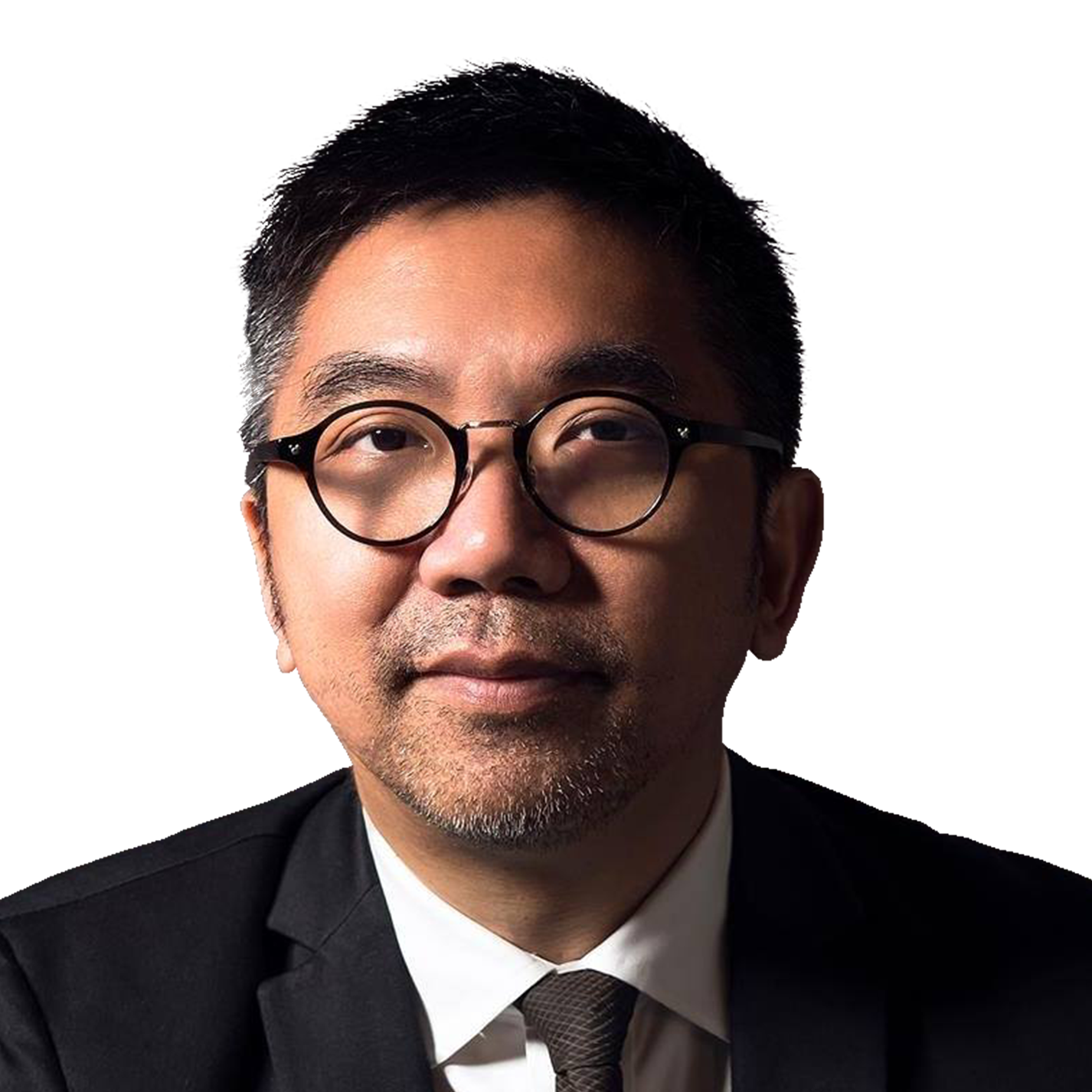
| Dr. Herman LO Associate Professor, Department of Applied Social Sciences, The Hong Kong Polytechnic University, Hong Kong SAR |
| Speaker Biography Dr. Herman Lo is an Associate Professor of the Department of Applied Social Sciences at the Hong Kong Polytechnic University. He is a Registered Social Worker, the Associate Fellow and Approved Supervisor from the Hong Kong Professional Counselling Association. Herman’s research expertise is in applying mindfulness-based interventions in parenting and caregiving. One of his recent projects is an online mindfulness programme for parents of children with ADHD. He has received appointments in editorial positions of world leading academic journals including Mindfulness, Scientific Reports, and Frontiers in Psychology. |
| Topic The Use of Technologies in Family Services in Shanghai, Hong Kong, and Taipei |
| Abstract There has been an increased application of technology in the social service sector. However, not all social service domains have readily tapped into the potentials of technologies, and the use of technology It is more evident in youth work and gerontological fields than in family service. In this study, we explore how social workers in family practitioners in three cities (Shanghai, Hong Kong, and Taipei) applied technologies into their practice. Research questions include the extent that technology used to meet organizational and service needs and goals, drivers and barriers. Technology Readiness Index is used to investigate underlying beliefs in application in four dimensions, including optimism, innovativeness, discomfort, and insecurity. Findings of this study prioritize the perspective of the service providers, and implications for action to advance the development of new knowledge, skills, and mindsets for the family service practitioners will be provided. |